When you're an Emporer, you can decorate your city any damn way you please. Roman chariot race track. Greek Column. Egyptian obelisk. German Fountain. Welcome to Istanbul's collection of ancient antiquities!
In the center of Old Istanbul, you can find just about anything. Of course, if you were nearly 3000 years old, you'd probably have collected more than a few unique things, too. But in this place, a chronological history of civilization unfolds in archeological splendor with every step.
Byzantium was founded around 685 BC by the nearby Greeks. After passing through Greek, Persian, and then the Greek hands again, it was conquered by the Roman Empire and renamed Byzantium around 200 AD. Renamed for Emperor Constantine, Constantinople stood as the center of the Eastern Roman Empire for 1200 years.
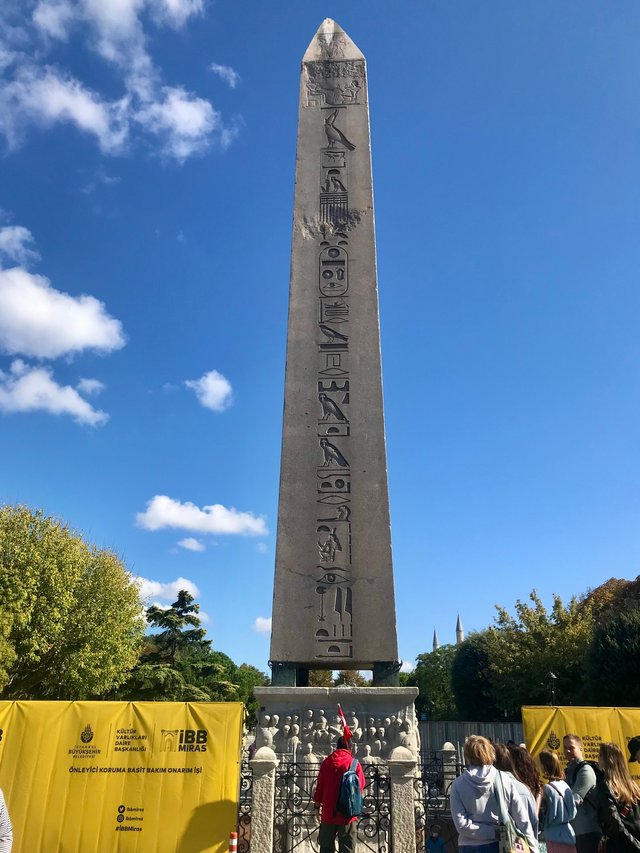
The Hippodrome was built initially by Emperor Septimius Severus around 200 AD. This incredible venue for community gatherings, chariot racing, and marketplaces could hold up to 40,000 bystanders. Severus decorated the Hippodrome with relics from all over the Roman Empire, including the Obelisk of Thutmosis III from Egypt, pictured above.
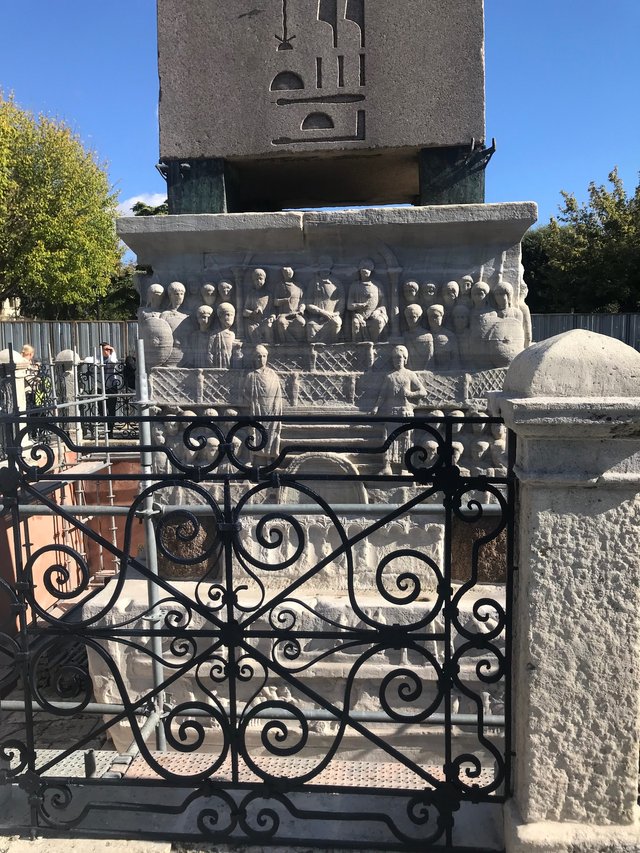
The Egyptian obelisk was moved from its original location in Luxor, Egypt, to the end of Byzantium's new race track, or spina. Made from red granite and nearly constructed 30 meters tall, the obelisk was damaged in transit and now rests atop a marble pedestal. At 3500 years old, the granite pillar remains remarkably unscathed, with its engraved lettering mostly still readable.
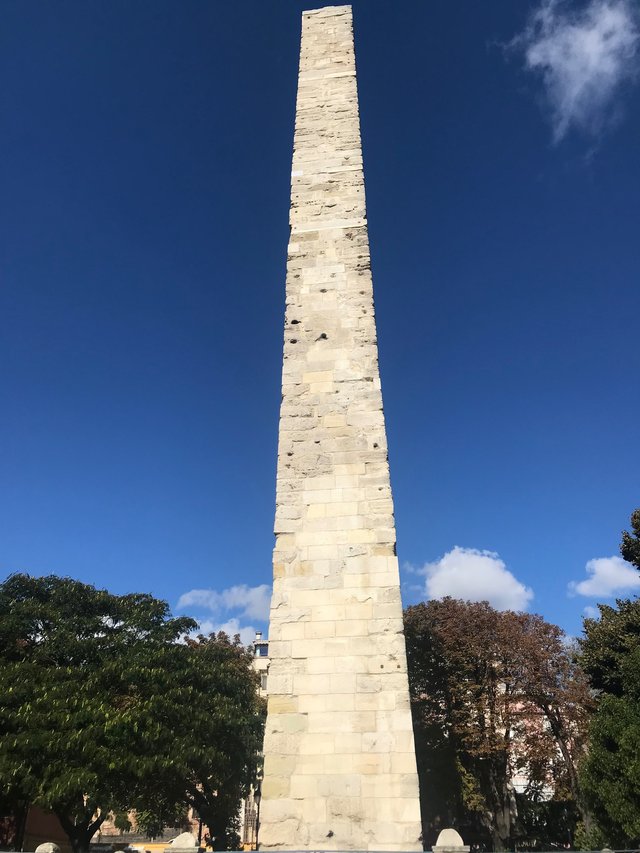
At the other end of the Hippodrome is a Roman constructed obelisk, called The Walled Oblisk. Initially covered in bronze plates, that precious metal has long since been stripped away and taken by looters. This stone pillar, now rather plain, is still something of a wonder, though. Still standing after thousands of years, it was likely constructed by Theodosius, a Roman counterpart to its Egyptian cousin at the other end of the spina.
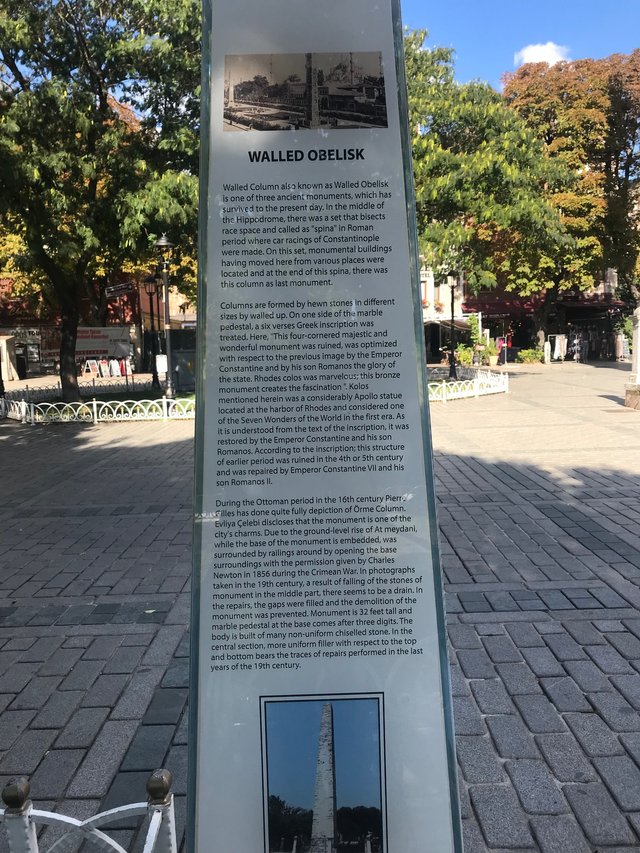
What a sight this tower must have been, glinting bronze in the bright Ottoman sun!
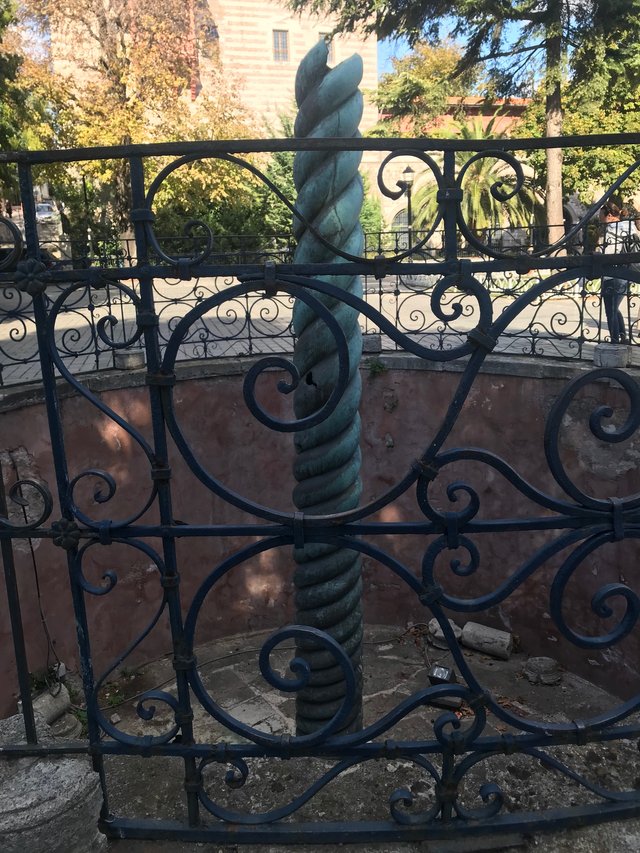
In 324 AD, Constantine the Great added his furnishings to the area. At 2500 years old, The Serpent's Column was taken from Delphi, Greece, and placed in the Hippodrome alongside the Obelisk of Thutmosis III. Badly damaged now, the column is not without significant importance and history.
Built by the Greeks around 500 BC, the Serpent's Column was built to commemorate their victory over the Persian Empire at the Battle of Plataea. Three heads of serpents topped his bronze spike, but and is on view at the Istanbul Archaeology Museum, just steps away.
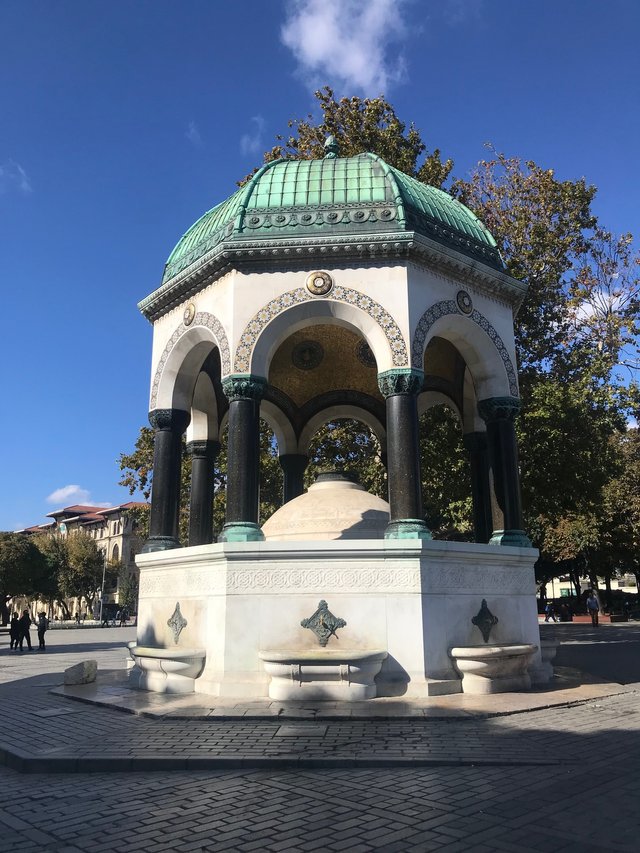
Fast forwarding a century, or two, another ostentatious icon was relocated to the Hippodrome by way of Kaiser Wilhelm of Germany. Given as a gift in 1900, the German Fountain commemorates the Kaiser's visit to Istanbul in 1898.
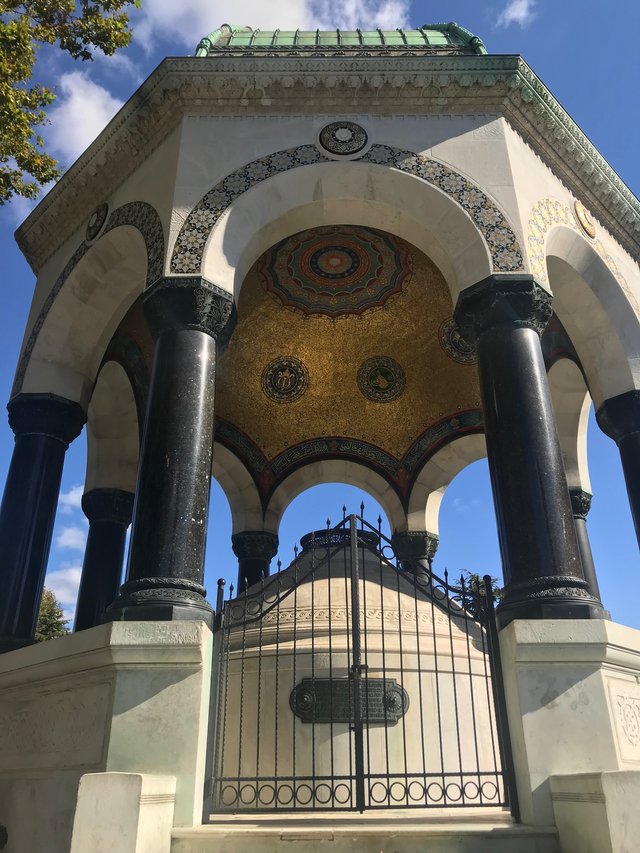
This relatively contemporary domed Fountain, an eight-sided gazebo in a neo-Byzantium style, features marble columns and a bronzed cap. Under this cap resides an elaborately designed golden mural, a fantastic mosaic fitting for an Ottoman capital city.
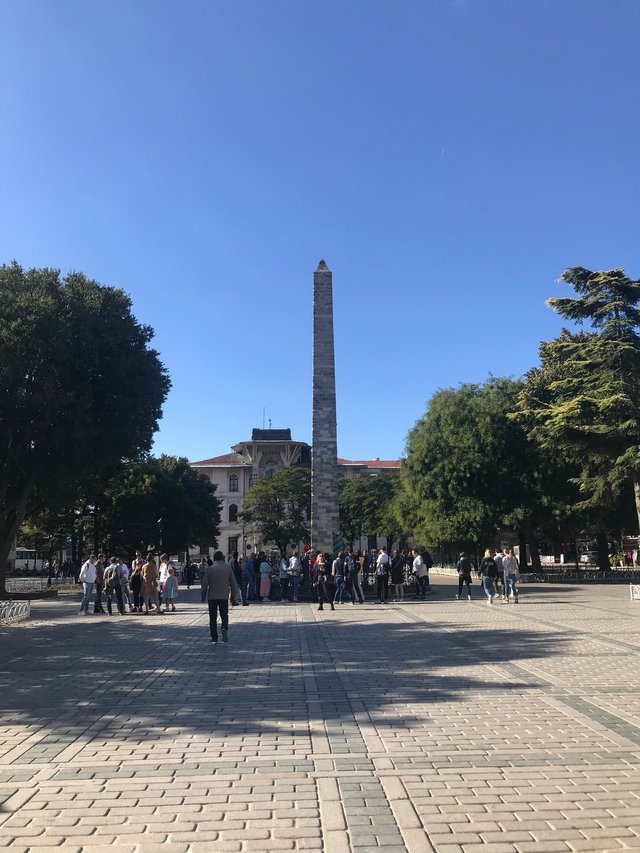
Overall, the Hippodrome of Istanbul is an open-air museum of looted treasures from the ancient empires. Greek trophies, Egyptian obelisks, Roman and German constructions. It all seems so appropriate, however. The combination and mingling of these icons of empires on a principal seat of their former power ring true.
The glory of Greece. The majesty of the Roman Empire. The ancient power of Egypt. All pay homage to the empires that followed and centered here in Istanbul: Byzantium, Constantinople, and the Ottoman Empires.
Walk the Hippodrome and marvel at these icons of the ancient world!
Cheers!
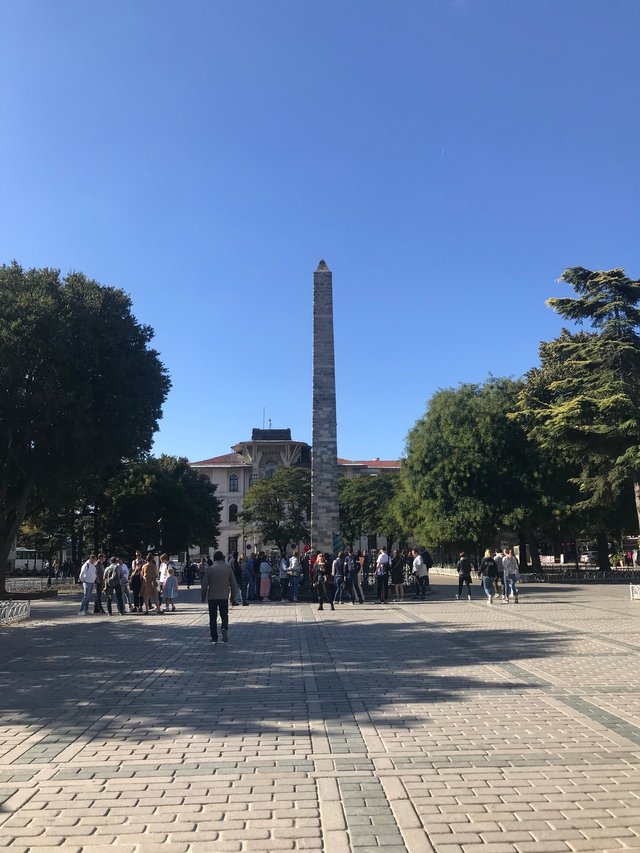
Congratulations @braveboat! You received the biggest smile and some love from TravelFeed! Keep up the amazing blog. 😍 Your post was also chosen as top pick of the day and is now featured on the TravelFeed.io front page.
Thanks for using TravelFeed!
@invisusmundi (TravelFeed team)
PS: You can now search for your travels on-the-go with our Android App. Download it on Google Play
Downvoting a post can decrease pending rewards and make it less visible. Common reasons:
Submit
Request recommendations and regularly update your profile with your latest accomplishments. Evaluate your presence on https://avarup.com/ other social media platforms and curate your content to align with your personal brand.
Downvoting a post can decrease pending rewards and make it less visible. Common reasons:
Submit
Customization ensures that security measures are aligned with the unique characteristics of the business addressing specific risks and vulnerabilities effectively. In the event of emergencies such as fires, medical incidents, or natural disasters, california security services are often trained in emergency response procedures.
Downvoting a post can decrease pending rewards and make it less visible. Common reasons:
Submit